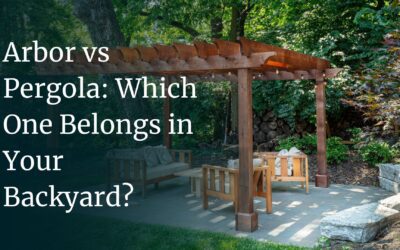A Landscape architect will work in a variety of settings, but what exactly do they do? It’s not uncommon for misconceptions to surround this multifaceted field. To shed light on what landscape designers truly do and how they contribute to the creation of beautiful outdoor living spaces, we’ve broken down some key aspects of their profession.
Designing Outdoor Spaces
At its core, landscape architecture is all about designing and planning outdoor spaces. It involves creating a vision for gardens, plantings, pools, paving, stormwater management and more.
Architects develop spatial orientations, establish relationships with the surroundings and determine key viewpoints to craft well-thought-out designs. When it comes to residential landscape architecture, this means designing everything from the layout of structures and planting beds to the types of greenery that surrounds your home.
Licensed and Regulated
Becoming a licensed landscape architect is a rigorous process overseen by individual states. This journey to licensure starts with an accredited degree in landscape architecture, supervised work experience under a licensed professional and passing a series of technical exams.
Once they’ve completed their training, landscape architects can obtain licenses in multiple states, allowing them to work in different regions. This level of regulation and oversight is essential to maintain high professional standards and ensure the safety and well-being of those who use these outdoor spaces.
More Than Aesthetics
While landscape photos we often see are stunning and visually pleasing, they are just snapshots of a much larger landscape design. Landscape designers go beyond aesthetics; they focus on creating experiences. It’s about how a space feels and functions, not just how it looks.
The landscape architect will take into account how each outdoor space will be used: Will it be a tranquil oasis, a lively party spot, a family barbecue area with an expertly designed hardscape or a birdwatcher’s paradise? These types of considerations shape the user experience and form the foundation of the design process.
Designers, Not Gardeners
Contrary to popular belief, architects do not physically build or maintain landscapes. They don’t spend their days pruning, transplanting or mulching.
Instead, they spend a significant amount of time at the drawing board and computer, collaborating with clients, architects and contractors to create detailed design plans. It’s landscape contractors who bring these professional designs to life, while gardeners and landscape workers handle landscaping maintenance tasks.
Working With the Big Picture
Architects view landscapes as interconnected systems. They consider the flow of water, the relationship to the greater watershed and the interaction of light and local climate effects.
The context of the site is crucial, and landscape designers ensure that their designs align with the big picture.
Technical Expertise
In addition to creating aesthetically pleasing designs, a landscape architect will delve into the nitty-gritty details. They work on grading plans, drainage, material selections, finishes and layout dimensions.
Staying updated on the latest techniques and best practices is essential for drawing technical details. Informed architects continuously expand their knowledge, not just on design trends but also on plant varieties and horticultural practices. They’re well-versed in using this expertise to design sustainable landscapes.
Experts in Sustainability
Long before sustainability became a buzzword, landscape architects were creating environmentally conscious landscapes. Many of their best practices, whether related to vegetation, stormwater management, material use or microclimate effects, have sustainability at their core.
Diverse Approaches to Design
Landscaping professionals don’t fit into a single mold. They work across a wide range of styles and expertise, from artistic and flamboyant to technical and reserved. Each architect draws inspiration from different sources, which influences their creations.
Whether it’s the serenity of deep woods, the richness of fine art painting or the style found in a particular geographic region, landscaping professionals tap into various influences to craft unique and innovative designs.
Do You Need a Landscape Architect?
If you’re considering a project that involves outdoor spaces and aren’t sure whether you need a landscape architect, don’t hesitate to ask. We often field questions from potential clients and can guide you through the decision-making process.
Want to speak to a dedicated professional to shape your outdoor environment? Book a phone consultation with us today to see your dreams come to fruition.




